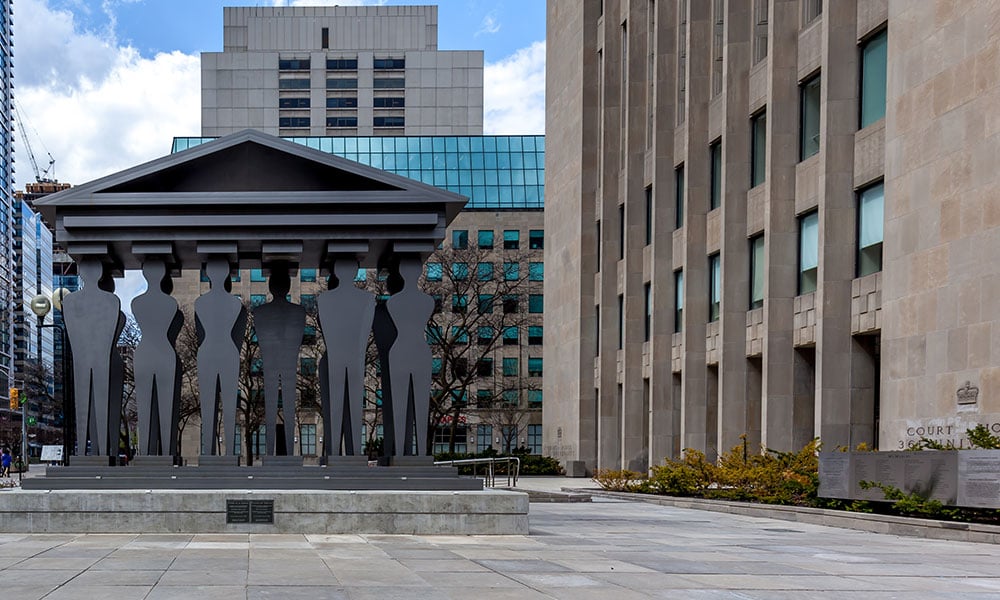
Court weighs whether factors of test for declaratory relief have been fulfilled

The Superior Court of Justice of Ontario recently considered whether the six-month suspension period should be counted in limitation period calculations.
As a part of the provincial government’s emergency response to the COVID-19 pandemic, it passed Ontario Regulation 73/20, which temporarily suspended all limitation periods, effective Mar. 16. On Sept. 14, Ontario Regulation 457/20 revoked O. Reg. 73/20, at which point all limitation periods resumed running.
In Attorney General for Ontario v. Persons Unknown, 2020 ONSC 6974, counsel for Ontario’s attorney general and intervenors sought a declaration from the Ontario Superior Court of Justice that would interpret the effect of O. Reg. 457/20 as follows: the six-month period of the suspension should not be counted in limitation period calculations going forward. They submitted that such a declaration would address the confusion in the justice sector because some people have been arguing that the the temporary suspension period should be counted in limitation period calculations going forward.
Justice Frederick Myers, writing for the Superior Court, dismissed the application, stating that “an application in this court against ‘Persons Unknown’ for an abstract ruling to support the government’s desired interpretation of its regulatory efforts, while convenient, is neither efficacious nor appropriate.”
Citing the four-factor test for declaratory relief in S.A. v. Metro Vancouver Housing Corp., 2019 SCC 4, Myers found that the first factor was present, given that the court had the jurisdiction to issue an order interpreting the effect of a regulation’s repeal, but that the three other factors were not fulfilled in this case. Myers said that the second factor, which states that the dispute should be real and not theoretical, had not been met because no evidence was presented as to the nature of the confusion, the possible different arguments or the prejudice caused to anyone.
“What is actually before the court is a worry by LAWPRO expressed to justice sector participants that as a result of the revocation of O. Reg. 73/20, people will sue lawyers in future,” wrote Myers. “If people sue lawyers, LAWPRO will have to incur costs to defend them.”
Myers expressed doubt that making a decision that clarifies the issue or that assists an insurer in potentially saving money on future claims would address a real dispute or would serve the public interest.
Compliance with the third and fourth factors, which are that the party raising the issue has a genuine interest in its resolution, and that the responding party has an interest in opposing the declaration being sought, was also not shown in this case, Myers said.
Myers declined to make the declaration sought because doing so would cross the lines separating the judicial, executive and legislative branches of government. He suggested alternatives for the attorney general to achieve the desired outcome, such as through the passage of legislation or clarifying regulations. The provincial government may also seek a legal opinion from the Court of Appeal for Ontario via the reference process, or the justice ministry may retain counsel to render a legal opinion, Myers stated.
Myers stressed that, in certain cases, the judicial branch may assist the executive branch under extremely urgent circumstances, like in Attorney General for Ontario v Persons Unknown, unreported decision dated Mar. 19, and in Stephen Francis Podgurski (Re), 2020 ONSC 2552. “I cannot agree with counsel for the Attorney General that protecting lawyers from being confused about limitation periods or protecting LAWPRO from future lawsuits is at all comparable,” Myers wrote.
In a post for Toronto Lawyers Association analyzing the impact of this case, Ranjan Das and Peter Smiley said that the decision resolved the confusion surrounding the interpretation of O. Reg. 73/20 and O. Reg. 457/20 and clarified that Myers agreed that the suspension period should not be counted when calculating limitation periods. “Parties with an interest in advancing the contrary position will likely find themselves facing an uphill battle, including vigorous opposition from LAWPRO and the Attorney General,” wrote Das and Smiley.